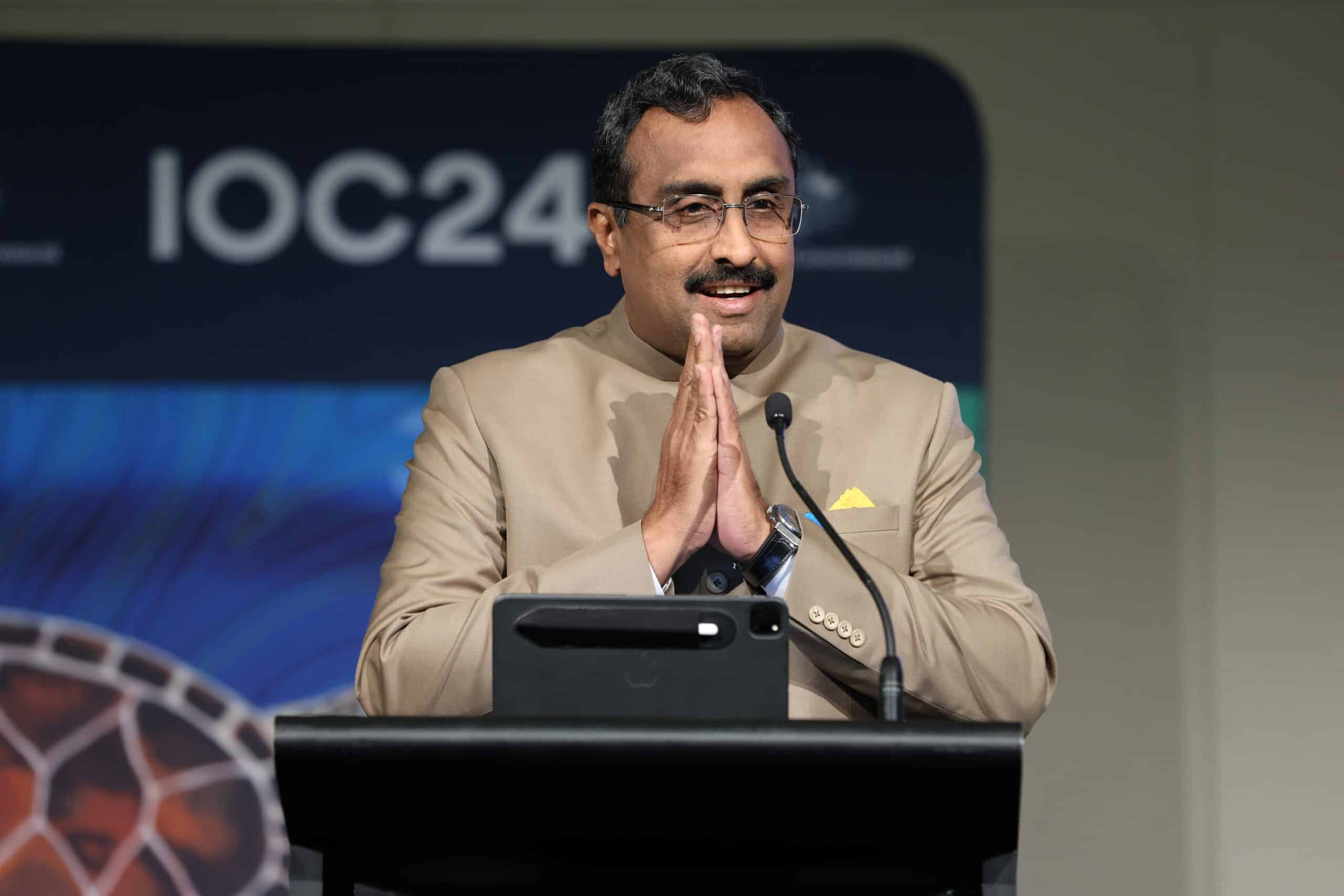|
Getting your Trinity Audio player ready...
|
ADDRESS AT THE BRICS POLITICAL PARTIES FORUM
10-06-2017 FUZHOU, CHINA
Brother leaders of BRICS political parties and friends.
Let me at the outset compliment IDCPC for hosting such elaborate preparatory meetings in the run up to the forthcoming BRICS summit in September. We hosted the 8th BRICS summit last year at Goa. We also held a few preparatory meetings at that time. Earlier in 2012 also we had hosted a BRICS summit in India at Delhi. But I must say that the amount of preparatory work that the CPC has undertaken ahead of this year’s BRICS summit certainly deserves rich compliments.
The most important addition this year is the meeting of the leaders of political parties from BRICS countries. Obviously we couldn’t have hosted such a meeting in India for the simple reason that we have close to 1700 political parties in India, of which about 40 are in our parliament, and around 200 of them are there in our State Legislatures.
Additionally the significance of this meeting, as I see it, is that we are trying to break the convention that foreign policy is the domain of diplomats and people in the governments alone. It is a remarkable thing. The foreign policy is jealously guarded by the mandarins in the foreign ministry. For us to see today a role for the political parties in advancing the agenda of BRICS grouping is an important and useful departure from the convention.
BRICS has undoubtedly evolved into an influential voice in the world today. Together with likeminded countries – BIMSTEC countries joined us last year for a BRICS-BIMSTEC summit, and several parties will join this year’s BRICS summit also we are told – we are slowly but surely emerging as the most influence voice in the world.
I wouldn’t hesitate to say that the 20th century belonged to the West. The western powers were responsible and instrumental in building the 20th Century global narrative that included building of global institutions, from UN to WTO. I believe that the 21st century narrative should belong to the BRICS nations. BRICS is the most unique and significant group in the 21st century.
India is very comfortably at home with countries in the BRICS grouping. Russia has been a longtime trusted and supportive friend of India. With China, it is a fact that we have had a hot and cold relationship. But I would like to recall what President Hu Jintao had said during one of his visits to India. ‘When you talk about India-China relations, remember that they are millennia old. We have been friendly neighbours for more than 2000 years. Whatever troubles we experience today belong to a very short period compared to our good neighbourly relations of millennia’, he said.
With South Africa our relationship goes much beyond politics and diplomacy. It is the land tread by Mahatma Gandhi. Nelson Mandela regarded Gandhi as his inspiration. Even with Brazil our relationship precedes BRICS by several decades. We worked together as members of the Non Aligned Movement in 60s and 70s. Thus we are at home in this arrangement. We want it to progress.
In the last 10 years, BRICS has achieved many things. We have around $250 billion intra-BRICS trade today. Last year at the BRICS summit the leaders have set a goal to double it by 2020. We will certainly achieve that.
But I would like to emphasise only one thing. BRICS is not just about another trade and economy alliance. It is not just about five countries coming together to promote their national interests. BRICS is an arrangement to offer a non-Western narrative to global politics in the 21st century. We have to aim at coming up with an alternative global narrative for the new century. It has to be just a non-Western narrative; not anti-West.
I don’t want to dwell at length about the challenges that the world is facing today. It is not just about the economies. Even our climate change issues are facing a challenge. Future of the Paris deal is at stake today. Our Millennium Development Goals, MDGs, are being postponed from time to time. We have now set 2030 as the new target year. We have several hotspots in the world like Afghanistan, Pakistan, Syria, North Korea, Middle East, West Asia etc.
Can BRICS come up with an alternate narrative to address these issues? We have to look in that direction of offering a new narrative in the 21st century. I believe that we as political parties certainly have a role in that. We are influential in our respective countries. My party is the ruling party in India with a membership of 110 million. We have overtaken CPC in terms of primary membership. But I would like to emphasise that BJP and CPC together boast of more than 200 million membership between them. It is a mind-boggling number. I have my colleague from Congress party hear. It is the second largest party in India. As parties we have enormous influence over our people. We should leverage that influence to prepare our societies for achieving the goals that BRICS has set for itself.
In conclusion I have to underscore one important need here. BRICS as a group is yet to build a coherent internal narrative. If we have to become a really dominant voice in the 21st century we have to find mutually acceptable internal coherent narrative. Towards that end the leaders of the political parties have to endeavour.
We have differences on issues between our countries. Bilateralism has the potential of derailing multilateralism. We have to be careful about it. We must build research institutions within our political establishments so that we can build a coherent narrative for BRICS in the 21st century.
As a representative of the ruling BJP in India I offer our fullest support to any initiative that this forum takes in terms of the political parties’ role in furthering the objectives of BRICS.



